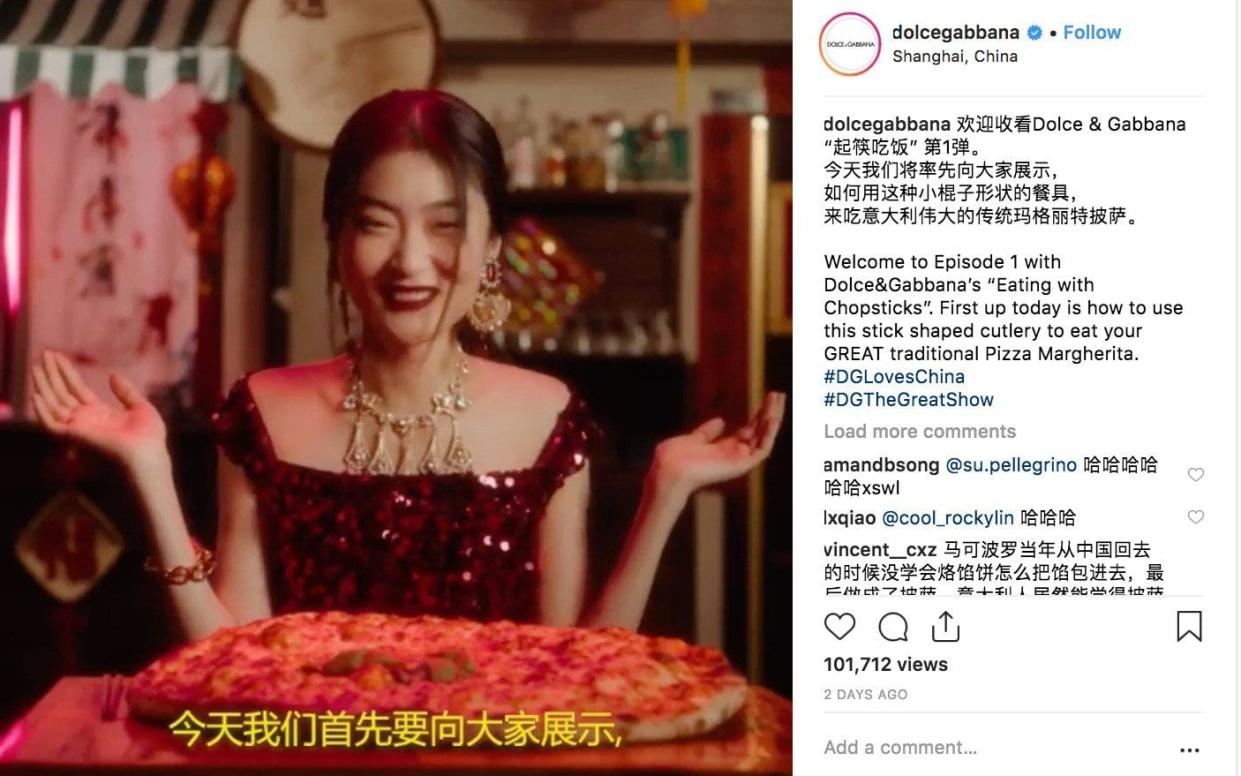Chinese model in ‘racist’ Dolce & Gabbana controversy says ad campaign ruined her career

The Chinese model who featured in 'racist' Dolce & Gabbana’s advertisements has said it ruined her career as she issued an apology for participating in the controversial campaign.
Three videos in D&G’s November campaign in China showed Ms Zuo trying to eat classic Italian foods including pizza, spaghetti and a giant cannoli with a pair of chopsticks, prompting widespread outrage for its outdated and negative stereotype of Chinese women.
The backlash led to D&G to cancelling a hotly anticipated fashion show in Shanghai as the company sought to exploit China's burgeoning luxury market. The multi-million pound production was slated to run for an hour when most catwalk shows are over in 10 minutes or less.
Ms Zuo stayed silent until Tuesday when she released a detailed 850-word social media post saying that as a model she wasn’t allowed creative input or opinions, nor was she able to see the final version in advance - and thus didn’t have the opportunity to consider the impact of the ads.
“I feel guilty for causing the disturbance,” Ms Zuo said. “I never expected that this one time would almost ruin my model career.”
“I have never thought of disgracing my country; I love my country,” she continued. “I take pride standing on the runway as a Chinese person...I will grow from this experience and will better display the character of a Chinese citizen.”
After the controversy of the videos, retailers in China pulled D&G products from their shelves and websites. Chinese celebrities and brand ambassadors publicly expressed discontent, with some even axing their contracts with D&G. It also triggered demonstrations at the brand’s flagship shop in Milan.
Designers Domenico Dolce and Stefano Gabbana issued a video apology, expressing their love and respect for Chinese culture.
“Our families have always taught us to respect the various cultures of the world, and for this, we want to apologise if we have made mistakes in interpreting your culture,” said Mr Dolce. “We have always loved China; we have visited many cities... and certainly we still have much to learn.”
“We offer our sincerest apologies to Chinese people worldwide,” said Mr Gabbana.
It wasn’t the first time a D&G campaign was denounced for being culturally insensitive in China. In 2017, models posing next to “regular” people such as working-class pedicab drivers in older Beijing neighbourhoods led to an outcry amongst Chinese who thought the images depicted an uglier side of the city.
D&G’s advertisement controversy was the latest example of the pitfalls international brands and businesses face in navigating Chinese cultural sensitivities.
Microsoft previously came under pressure for its Bing search engine because in Mandarin Chinese “bing” sounds like the word for “disorder” or “illness”.
China remains a key market for luxury brands looking to expand. Shoppers in the world’s second-largest economy account for a third of the luxury spending globally, and are estimated to account for half of global sales by 2025.
Additional reporting by Paula Jin

 Yahoo News
Yahoo News 
